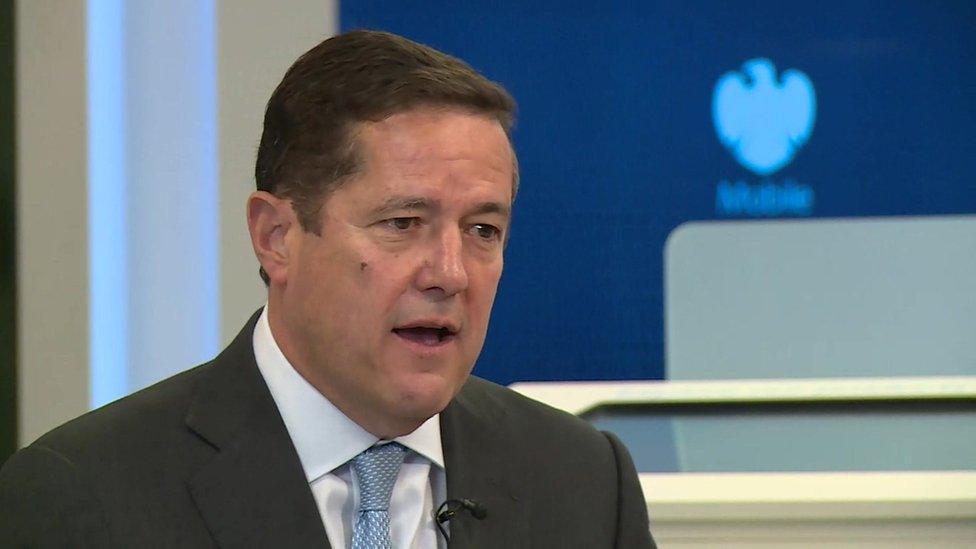Barclays boss has reasons to be cheerful
- Published
- comments

Barclays chief executive Jes Staley was in a good mood this morning - and why not?
After three years of losses, Barclays is back in the black, it will have sold off all its non-essential businesses by June, its capital levels are very close to the point where the banking authorities will let it start paying higher dividends, and interest rates could head upward - a good thing for banks' profit margins. Its shares rose 3% on the news - happy days.
However, a huge upheaval of the European banking system is on the horizon as the UK prepares to trigger Article 50, taking the financial heart of Europe out of the EU, and out of the single market.
Today we got a little more detail on Barclays' contingency planning. It seems Dublin may become the headquarters of its European business, requiring hundreds of additional staff there and in its offices in Frankfurt and Milan, which may become branches of the Dublin bank rather than the UK bank.
Despite this structural sleight of hand, Mr Staley is confident London will remain the financial centre of Europe long after Brexit.
But he also issued an important warning. What happens to a 10-year loan, or agreement with a customer in the EU, struck in the next two years before the UK formally leaves? How can the parties be sure that the terms of the contract between them are still valid in the years after Brexit, before the terms of trade have been agreed?
According to Mr Staley, honouring deals like this into the future - or "grandfathering" them - is crucial to maintain confidence in this coming period of uncertainty.
US reform
He also had a warning for Donald Trump. Don't mess with US bank regulation.
Promised cuts to tax and banking regulation in the US have seen shares in the likes of Goldman Sachs and JP Morgan rocket. But, according to Mr Staley, dismantling the controls put in place after the financial crisis would undo a lot of good work done to make the financial system safer.
"Higher capital levels and lower risk taking by banks has been a good thing, and I don't think (regulation) should be rolled back," he said.
If the stock market is right, and the big investment banks will be able to generate higher returns by taking more risk, Barclays' sizeable US operations may have a tough choice to make: keep up with your Wall Street neighbours, or look safer (and more boring) to investors.